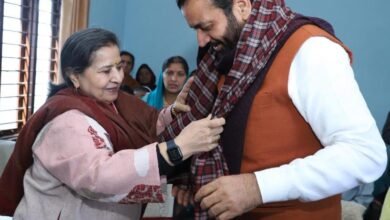
Charitable Trust Silk Route Boosts Handicraft Margins by 250%!
Silk Route is a public charitable trust that connects artisans from different craft clusters with the end consumers in a two-step supply chain. It was started as a community by Kashwin Sahaiya – who works as a product manager with a fintech company, with the sole aim to increase the pocket price of handicraft artisans and explore the colorful art and craft of India. While doing so, she witnessed a high demand for the products and in order to fulfill the demand, Silk Route metamorphosed into a marketplace.
On the 9th of June, the trust exhibited designs of several artisans and designers under a roof at the exhibition “Summer Loom”, boosting the pocket price of the participants by over 250%. “This is the magic of an optimized and clean supply chain!” Kashwin told us. The non-value adding elements of a handicraft supply chain comprises not the minority but the majority. For instance, Kalam Kilms – one of the exhibitors – makes beautiful tapestries and carpets that never reach a well informed consumer who understands their value. High price, high skill…but a poorly targeted customer? That’s a good recipe for no sales! “Craft to customer mapping for optimal sales is yet another underlying principle…that Silk Route incorporates into its marketplace activities”.








Silk Route’s exhibition and mixer, Summer Loom, was an all day event at the MPH Hall at Kamani Auditorium. It witnessed a splendid array of designs from craftspeople and designers, promoting the “maker to market” social movement that dispels profit-eating elements of an unnecessarily long supply chain in the handicraft industry. Gracing the all-day affair was a fantastic guest list comprising industry experts, bureaucrats, several philanthropists and members of prestigious academia, and young and enterprising professionals. 100% proceeds from the charity’s exhibition have gone to the creators themselves – translating to an impact of employment to women in 250 villages, promotion of sustainable practices – e.g. just-in-time and made-to-order, and a small step towards empowerment of handloom, particularly khadi, in remote areas of Gujarat.
An Ahmedabad based exhibitor Moral Fibre creates exclusively khadi garments – sourced, created, and finished in local workshops and businesses in Gujarat villages. Shailini Sheth Amin, founder of Moral Fibre, says that sustainability is not just found in the cloth you source or make, but also in the usage of it. Repeating clothes, reusing clothes, and readapting clothes is an integral part of the sustainability mindset. She outsources all her activities and processes, preferring to offer work to the local talent around her city. Find more about her brand here:
https://moralfibre-fabrics.com/
While Summer Loom saw huge support in kick-starting Silk Route as a marketplace in the handicraft and sustainable fashion space, the founders Kashwin Sahaiya and Ranu Sahay foresee challenges in the cognisance of art value among the customers. Ranu Sahay, a legal counsel and law faculty, informed us that the sale of Sanji art was next to nil because today’s consumers don’t recognize the value of hand-cutwork on paper. A machine can do what the skilled hands do in 1/100th the cost. So, are some crafts more saleable than the others? Yes, probably. The awareness, marketing, and cluster empowerment would make all the difference.





